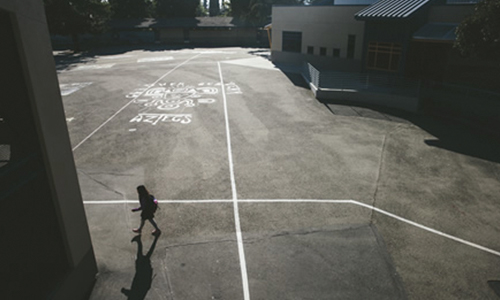

Summer learning loss: Does it widen the achievement gap?
Megan Kuhfeld shares work exploring how differing patterns of summer learning loss or growth may impact academic achievement gaps.
By: Megan Kuhfeld


Back-to-school accessibility checklist
Devices are only as accessible as the content they deliver to students. Put your vendor list to the test with these accessibility questions.
By: Elizabeth Barker
Topics: Accessibility


This kindergarten sneak preview helps families hit the ground running
For three weeks in the summer, children who are entering kindergarten in Portland, Oregon, get ready and get excited to start school. While it’s no substitute for pre-K, getting a preview helps ease the transition for kids, and offers parents a sense of connection. Special correspondent Lisa Stark of Education Week reports.
PBS News Hour
Mentions: Beth Tarasawa
Topics: Early learning, Equity, High-growth schools & practices


Evaluating the relationships between poverty and school performance
This visualization presents findings from our report Evaluating the Relationships Between Poverty and School Performance and gives you the chance to explore how your school site compares to schools from the sample.
By: Andrew Hegedus
Topics: Equity, High-growth schools & practices


Summer learning loss: What we know and what we’re learning
In this blog, Megan Kuhfeld shares background on what we know about summer learning loss, and the significant gaps that remain in our understanding that drive her work to take a fresh – and deeper – look at the phenomenon.
By: Megan Kuhfeld


Summer learning gaps worsen in higher grades, just not the way you think
Megan Kuhfeld shares surprising early findings from her work exploring patterns in students’ summer learning loss.
Education Week
Mentions: Megan Kuhfeld


Making digital content accessible for all
On this Education Talk Radio Pre K – 20 radio show, host Larry Jacobs talks with NWEA’s Elizabeth Barker and Brian Tosky about universal design for learning and more.
Making digital content accessible for all. Education Talk Radio Pre K-20
Mentions: Elizabeth Barker
Topics: Equity, Accessibility


